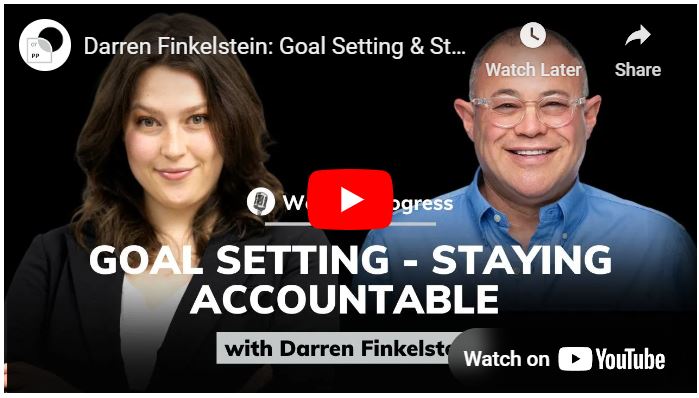Entrepreneurship is not smooth sailing. All founders agree on that. But how do you cope?
The essential step in overcoming entrepreneurial stress is to accept that anxiety is normal.
Here are three ways to address the problem.
Recognise the normality of anxiety
This may seem strange, but it is one of the most significant differences between people with high, and low, stress potential. A study, reported by psychologist Adrian Wells, found that “meta-worries”, or worrying about being worried, is one of the main criteria for differentiating between those who are profoundly concerned and those who are not worried.
Adrian Wells and other researchers have found that external signs of anxiety help intensify and sustain anxiety. Similarly, research conducted by the British Institute of Psychiatry has found that people who suffer from high social anxiety are more likely to perceive other people’s concerns and then interpret this as a very negative thing. That’s why the most crucial step in overcoming entrepreneurial stress is to accept that anxiety is, in the end, relatively standard.
According to psychologists, people who focus on their personal strengths and coping resources successfully reduce their anxiety. Meanwhile, people who interpret their anxiety as weakness and disability increase their stress levels.
And in the business world? You will never meet an entrepreneur whose work does not create stress. So, once again, reducing stress begins by accepting its banality.
“When you build a startup, one day you are euphoric and convinced that you will own the world; another day, the catastrophe seems very close and you think you are completely ruined. Again, again and again, and again.” -Marc Andreesen.
Stay connected to your peers
The financial benefits of networking in the business world are undeniable. But in a culture that is focused on the commercial motivations of networking, we often forget to mention how important it is, too, to our emotional well-being.
According to an RHR International survey of CEOs, half of the respondents acknowledged that they had already experienced a sense of loneliness in their business; and 61% of them felt that isolation hindered their performance. Fear and ego are two of the leading causes of this kind of isolation. Entrepreneurs can tackle loneliness by connecting with other start-up founders or with business groups or associations of like-minded folks. Try BOAA (Business Owners Association of Australia) you’ll see me at all their networking events.
Entrepreneurs need to find a place where to have unfiltered discussions. Becoming a CEO (or founder of a start-up) can make someone much more alone than they would imagine. Too many entrepreneurs believe that they must be impervious to problems. They must also find an environment where they can be vulnerable — an environment of trust.
This is a big issue for entrepreneurs who consider all potential peers as competitors, and who see networking entirely through the lens of how it can benefit their business. They are ultimately less likely to build lasting business relationships. They are also more likely to suffer from stress.
If stress becomes a major problem for you, there is a good chance that your family and friends have something to do with it. Research has found that feeling part of a group (even as a low-status member), and having close friends and relationships significantly reduces feelings of social anxiety.
Manage your work and life – load
Ultimately, while the very definition of “entrepreneur” involves stress, we all tend to create a lot of that stress ourselves by assuming more than we can manage. To succeed in your business, you must set priorities so that you do not accept more projects than you can handle. Both professionally and personally.
Delegate more and avoid micromanagement – a bane of young ecosystems and old – traditional – business environments (like Australia). Hire new talent if necessary. Learn to say “no” to this extra 10 % of projects because it will seem like 50% of the workload when you try to do everything. Track the time you spend on each task. You will quickly discover that some tasks take up too much of your time, for minimal benefit. Take a fresh look at your business and ask yourself how you would do things now if you started from scratch. Remember that you may actually still be in that starting phase by the way.
What processes would you eliminate? What would you change to create a less stressful environment?
Acknowledge and accept your stress, connect with your peers and redefine the priorities of your work tasks – and life. Ultimately, speak up, share, communicate.
Do this and you will probably see a radical change in your ongoing quality of life as an entrepreneur.
Game-Changing Facts to Unlock Your Full Potential
Did you know that a 2010 study by the American Society of Training and Development (ASTD) revealed the key factors that influence your probability of accomplishing a goal, task, or project?
Here’s the eye-opening breakdown:
- 10% likelihood of success when you have an idea or goal.
- 25% likelihood of success when you consciously decide to pursue it.
- 40% likelihood of success when you set a specific timeline.
- 50% likelihood of success when you create a detailed plan.
- 65% likelihood of success when you commit to someone else.
- 95% likelihood of success when you have a specific accountability appointment with the person you’ve committed to.
Ask yourself this…
Can you truly achieve your goals, promises, obligations, and commitments on your own?
The answer is clear! Success is rarely a solo endeavor. Embrace the power of accountability and unlock your full potential today!


